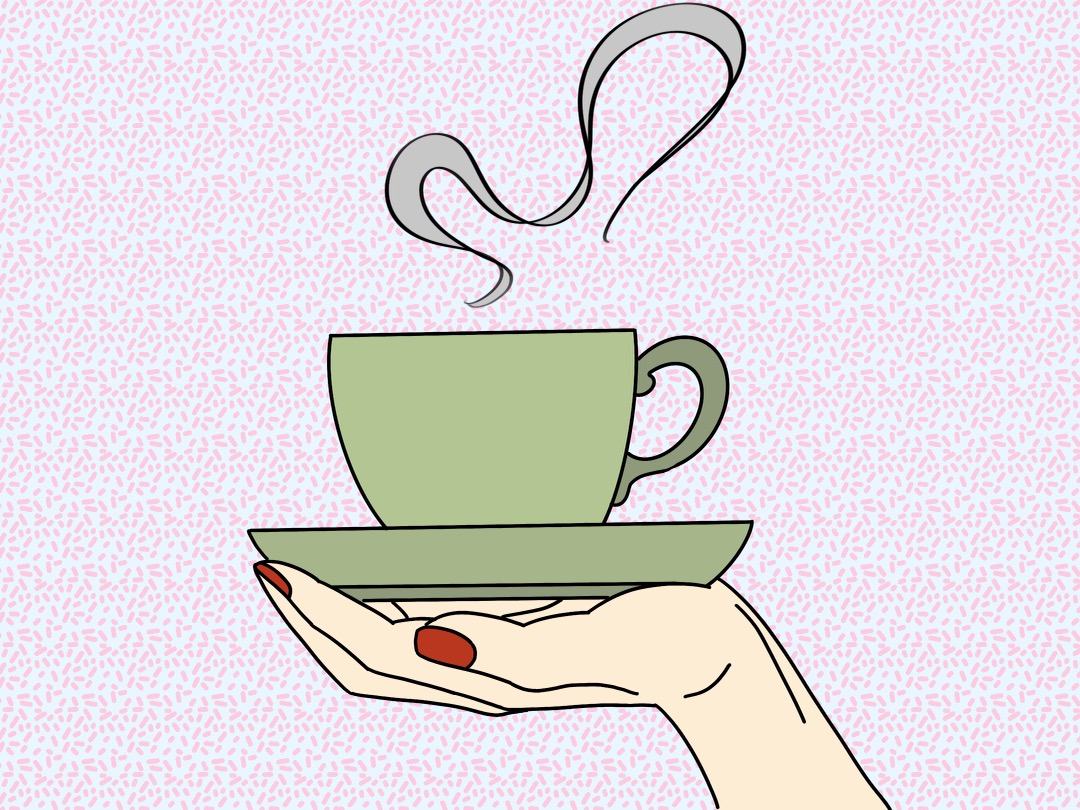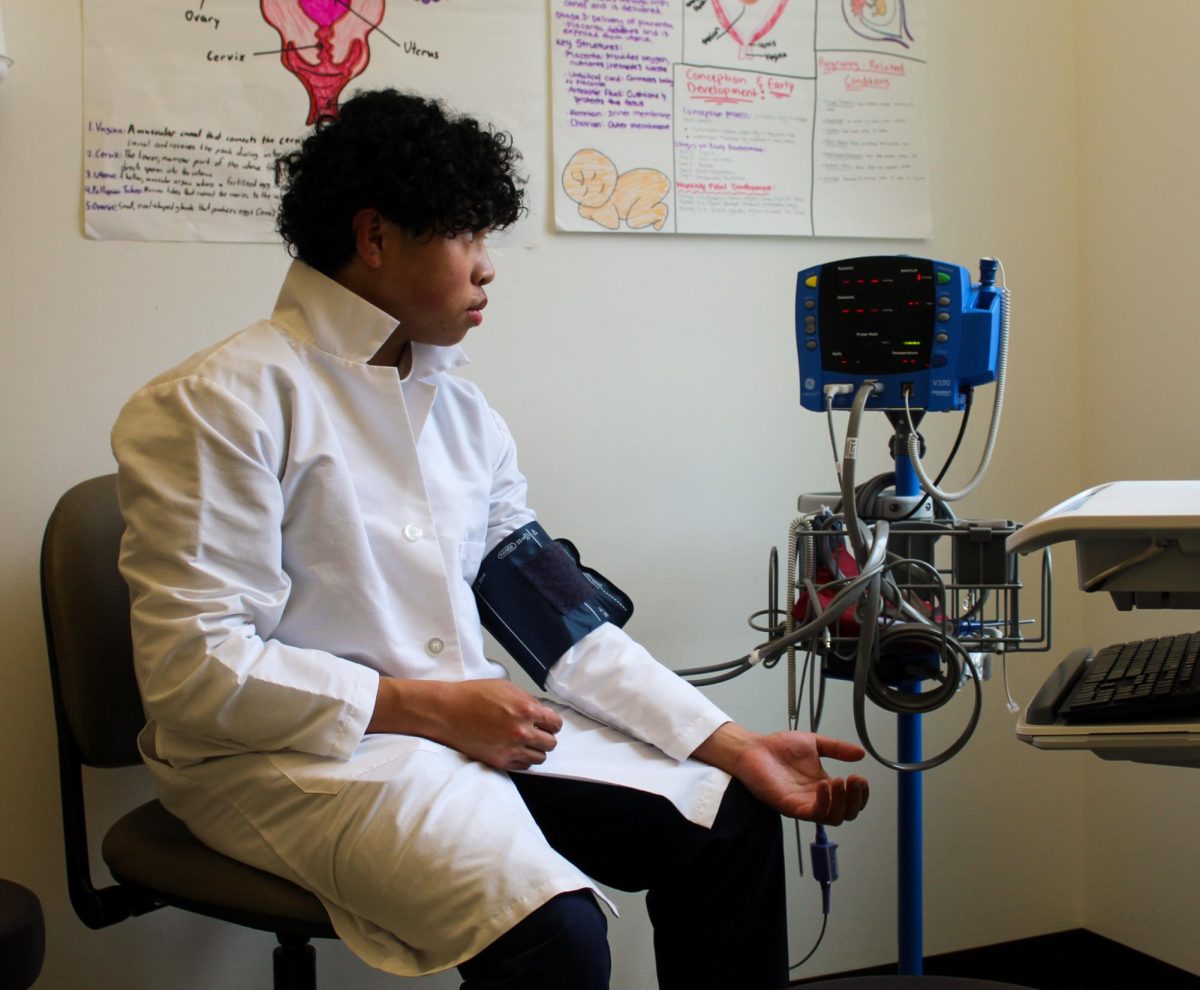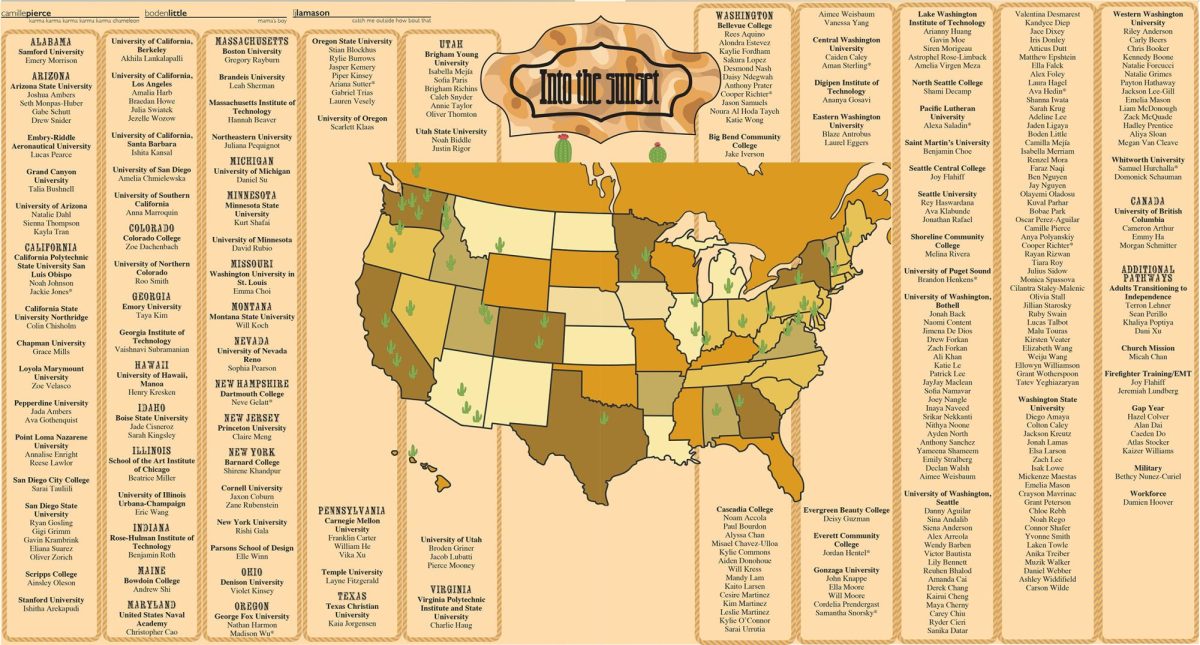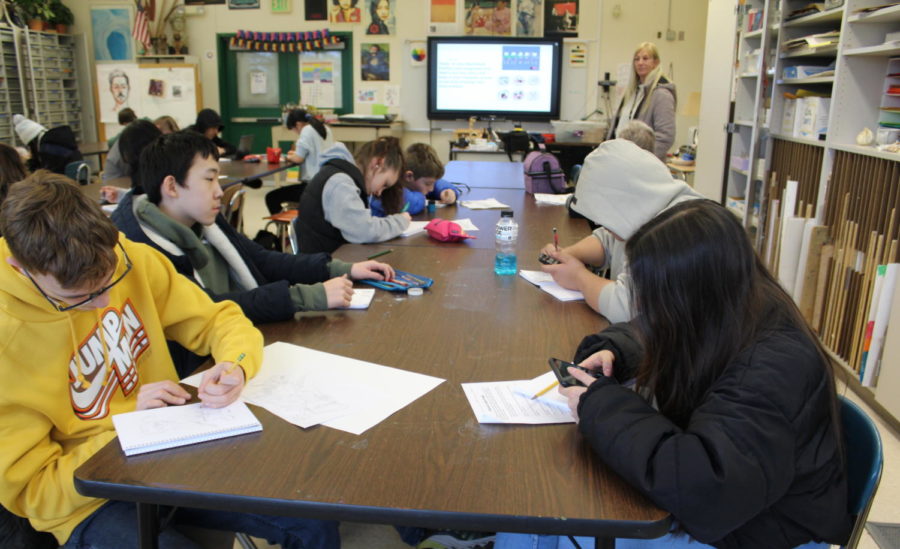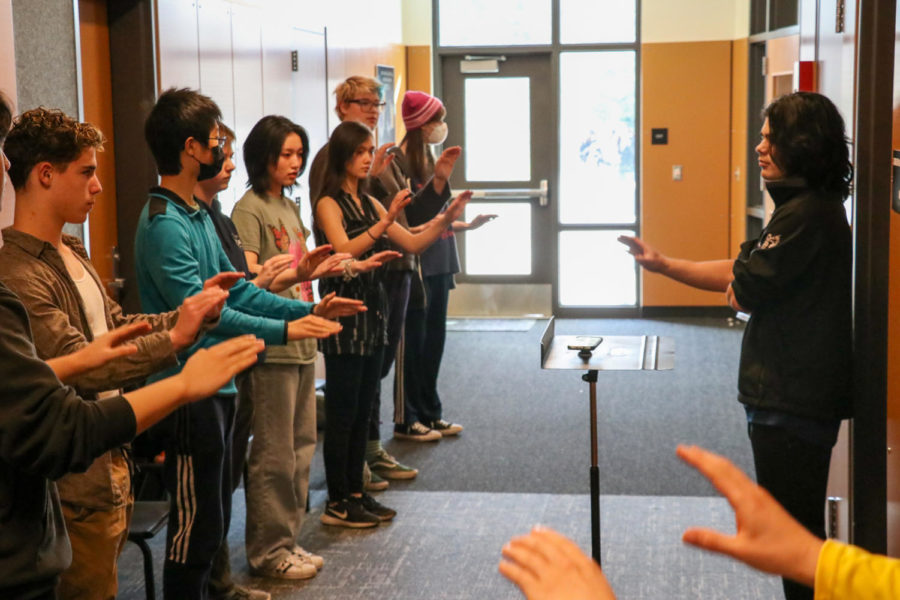Many teens choose to drink caffeine despite its ill effects on their health. A study by Mayo Clinic showed that 83% of teens ages 13-18 consume caffeine regularly, and 96% drink it semi-regularly, even though excessive caffeine intake can damage teenagers’ focus, ability to sleep and mental/physical health.
Adults can have up to 400 milligrams of caffeine daily, but according to Michigan Medicine, teens aren’t recommended to have more than 100 milligrams, equivalent to one cup of coffee. Consuming more than 500 mg of caffeine — 3-4 cans of Monster — can cause heart palpitations. The American Academy of Pediatrics also advises that teens refrain from drinking energy drinks entirely. Unfortunately, many teens are unaware of these guidelines or simply choose not to follow them.
Senior Cate Stead (she/her) has around two caffeinated drinks a day. She mostly drinks Revup Energy drinks or coffee. Stead started drinking caffeine when she was 14, and her intake has increased since then. Recently, she’s been more watchful about her intake.
“I definitely used to consume a lot more a couple of months ago,” said Stead. “I was having three drinks a day, or I would have multiple in a short time span, and then I was starting to get shaky during volleyball season.”
Teacher Amanda Ellis (she/her), who got her bachelor’s degree in Human Nutrition and Health with a major in Dietetics from the University of British Columbia, said she sees students drinking energy drinks or coffee in at least a third of her classes.
“This doesn’t surprise me as students tend to stay up late, and the early start time of school means they’re often tired from insufficient sleep,” said Ellis. “Multiple studies show adolescents’ sleep schedules and needs differ from adults. This research suggests that adolescents naturally sleep later and longer than their adult counterparts. Because of this, the early start time of school means that many students need stimulants such as caffeine to function early in the morning.”
Stead said that caffeine helps her stay attentive, but she doesn’t necessarily rely on it to function. She said she could do without caffeine, but she feels better drinking it.
“Honestly, I just really like the taste of drinks a lot, and I just like having a little fun beverage with me — at all times, but I also feel like it helps keep me awake and focused during class and at work,” said Stead.
As a registered dietitian, Ellis said she doesn’t think teens should be drinking caffeine at the levels they do.
“Many of these drinks specifically note that they shouldn’t be consumed more than once per day, but I routinely see students consuming multiple per day,” said Ellis.
Junior Abigail Lam* (she/her) drinks caffeine almost daily. Lam drinks 5-hour energy drinks that come in small capsules and Monster energy drinks so she can stay up all night and study. Since she dislikes the taste of 5-hour energy drinks, she said she usually washes it down with a sip of Monster. Lam drinks caffeine to stay up multiple times every week and doesn’t see herself stopping, even though she hides her caffeine intake from her parents.
“They found my Monsters once and got pissed off at me because I feel like they think of caffeine as being on the same level as drugs. Obviously, I don’t think that, but that’s how they view it,” said Lam. “I still need to stay up and do my work, though, so I just take it anyway.”
Lam says she wouldn’t drink caffeine at all if it were up to her. However, as a full IB student, Lam has so much schoolwork that she doesn’t feel like she has any other option.
“I knew it would be a lot of work, but I just feel like I wasn’t ready, so I just turned to the caffeine to keep me up at night,” said Lam.
Despite the unhealthy impacts of pulling all-nighters, Lam says she does well on tests after pulling all-nighters and doesn’t think staying up late hurts her ability to concentrate.
“Focus is a weird thing for me. If I sit down without distractions and am on caffeine, I have this big burst of energy. I just sit there and work; I can write essays really quickly, and the work I put out is pretty good, too,” said Lam.
Unlike in coffee and tea, caffeine in energy drinks is artificial, making them the least healthy type of caffeinated drink. Additionally, many energy drinks, such as regular Monster and Redbull, contain large amounts of sugar. Most energy drink cans have a small warning that advises those under 18 not to drink them; however, in a recent Nordic News poll of 140 students, 16.3% reported consuming energy drinks regularly.
Stead said she is somewhat aware that minors are advised not to drink energy drinks, but added that it doesn’t feel that way since many people drink them since the rule isn’t enforced anywhere it is sold.
“I think a coffee or latte once in a while is fine, but the energy drinks I see students consuming is very alarming,” said Ellis. “In addition to the high levels of caffeine in them, there are also additives such as taurine that can impact the cardiovascular systems of some individuals. The fact that the contents of energy drinks aren’t highly regulated, and their long-term effects on children are still unknown, is cause for concern.”
Possibly because of health concerns surrounding energy drinks, some teens don’t consume them. Senior Kyra Wolf (she/her) mainly drinks caffeine in coffee and tea and stays away from energy drinks.
According to the Cleveland Clinic, it’s possible to become dependent on caffeine, but not to the point where it’s a form of addiction. When someone becomes dependent on caffeine, they can’t go through the day without it. Wolf doesn’t drink caffeine every day, and she doesn’t rely on it to keep her going during the day.
“There are very rare times I drink caffeinated drinks for the energy,” said Wolf. “The majority of the time, I have teas with minimal amounts of caffeine. I think I’m regulating my caffeine to a healthy amount,” said Wolf.
Stead said it’s hard to gauge her dependency on caffeine since she hasn’t gone without it for a long enough period of time, but she has noticed her caffeine tolerance increase.
“I’ve definitely felt like a craving for it; I’d be like, ‘Oh, I’m so tired right now. I just wish I had a drink or something.’ Or when I first wake up in the morning, I always want to go get a drink, and it just depends if I have time or not,” said Stead.
For teens looking to avoid excessive caffeine consumption, options such as tea and decaffeinated coffee are healthier. However, Stead said she finds decaf pointless.
“I’ve never had decaf in my entire life. I don’t know, it feels kind of like a waste to pay for decaf, like I’m gonna get a latte or something, I’m gonna have to pay the money anyways, I should at least get the caffeine,” said Stead.
Even with the knowledge of caffeine’s negative effects, teens who drink it often don’t intend to stop. Lam doesn’t see herself changing her caffeine-drinking habits, but she says if she were to give advice to someone younger than her, she would tell them not to drink caffeine.
“I’m a bit of a hypocrite in that sense. Any time my friends tell me about the amount of caffeine they’re taking, I’m always against it,” said Lam. “I should be listening to myself.”
*Name changed for anonymity


